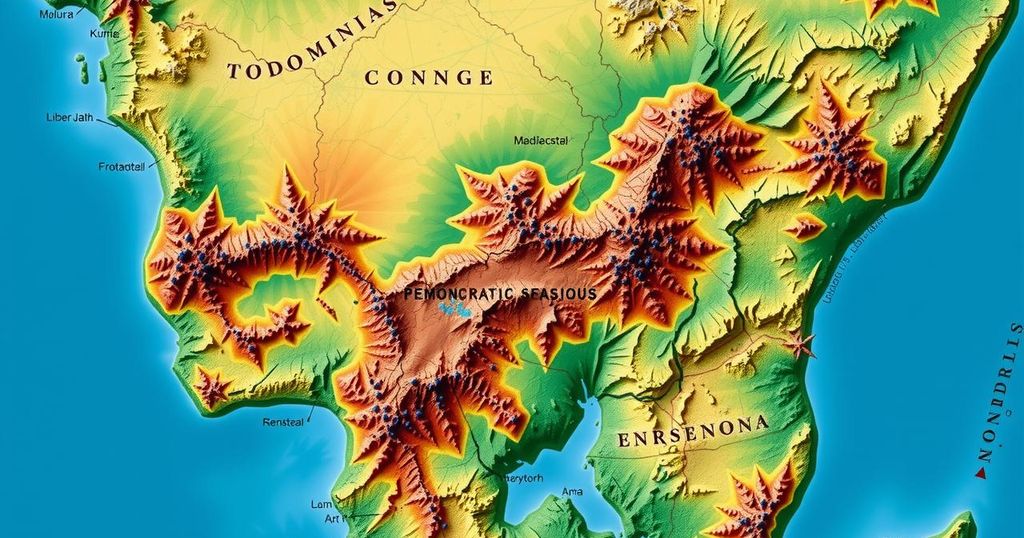The Democratic Republic of Congo is seeking a partnership with the United States to confront M23 rebels and negotiate potential mineral deals. The country’s vast resources, including cobalt, could benefit both parties, though concerns over the feasibility of military collaboration and the need for oversight persist. Recent developments may lead to further discussions as the US prepares a regional envoy to engage with Kinshasa.
The Democratic Republic of Congo (DR Congo) is exploring potential collaborations with the United States amidst its ongoing conflict with M23 rebels. Recognizing the US’s proclivity for transactional relations, as evidenced by the Ukraine-US mineral agreement, DR Congo seeks to establish its own deal. Congolese government spokesperson Patrick Muyaya has confirmed intentions to engage with the US for supplying critical minerals and discussing security matters.
The urgency for such a deal stems from military challenges faced by DR Congo, particularly with the M23 rebels, who have gained substantial ground in the eastern region. Despite the involvement of regional forces, military support has proven inadequate, leading President Félix Tshisekedi to consider strengthening alliances, potentially with the United States. Recent communication from Tshisekedi indicated interest from the Trump administration in strategic minerals negotiations, while the Africa-USA Business Council has proposed an economic and military partnership to US Secretary of State Marco Rubio.
DR Congo is home to vast untapped natural resources valued at approximately $24 trillion. As the leading global supplier of cobalt, essential in various industries, the country also possesses significant deposits of lithium and uranium. While the US is focused on securing infrastructure projects like the Lobito corridor, its presence in Congolese mining remains minimal, primarily due to competition from China. Although the DR Congo could present favorable conditions for American companies, uncertainty remains regarding the willingness of private entities to engage in what may be viewed as a risky environment.
Collaboration could bolster military cooperation, including training local forces to safeguard mineral routes and granting access to US military bases. Nonetheless, there is skepticism about the feasibility and immediacy of such arrangements, with experts expressing doubts about the effectiveness of US military involvement in the region. Additionally, the Congolese mining analyst Jean-Pierre Okenda emphasizes the necessity for oversight in any prospective deals to ensure they benefit the populace amid concerns over government transparency.
Current developments suggest that definitive agreements are not imminent. Muyaya indicated that further details may unfold in the coming days, signifying a commitment from Tshisekedi to pursue this avenue. In the US, preparations are underway for the appointment of Massad Boulos as the new Great Lakes regional envoy, a move expected to facilitate engagement in Kinshasa in the near future.
In light of the ongoing conflict with M23 rebels, the Democratic Republic of Congo seeks strategic partnerships with the United States to secure military and economic support. The nation’s abundant mineral resources present opportunities for fruitful negotiations. However, skepticism surrounds the practicalities of military cooperation and the need for transparency in any agreements made. As developments unfold, the focus lies on fostering a partnership that could bolster stability and mutual benefit between the DR Congo and the United States.
Original Source: www.bbc.com




